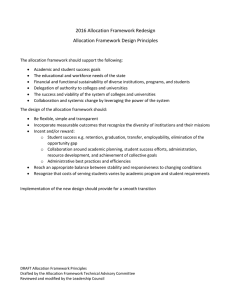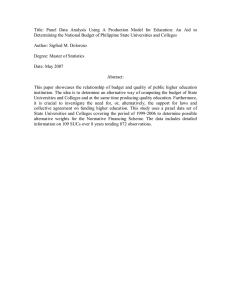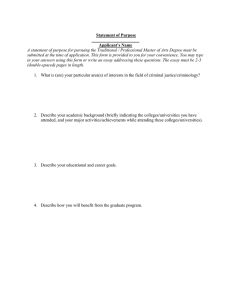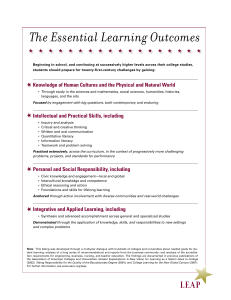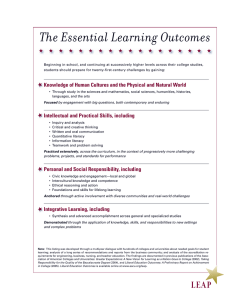Tax Exemption for Universities and Colleges
advertisement
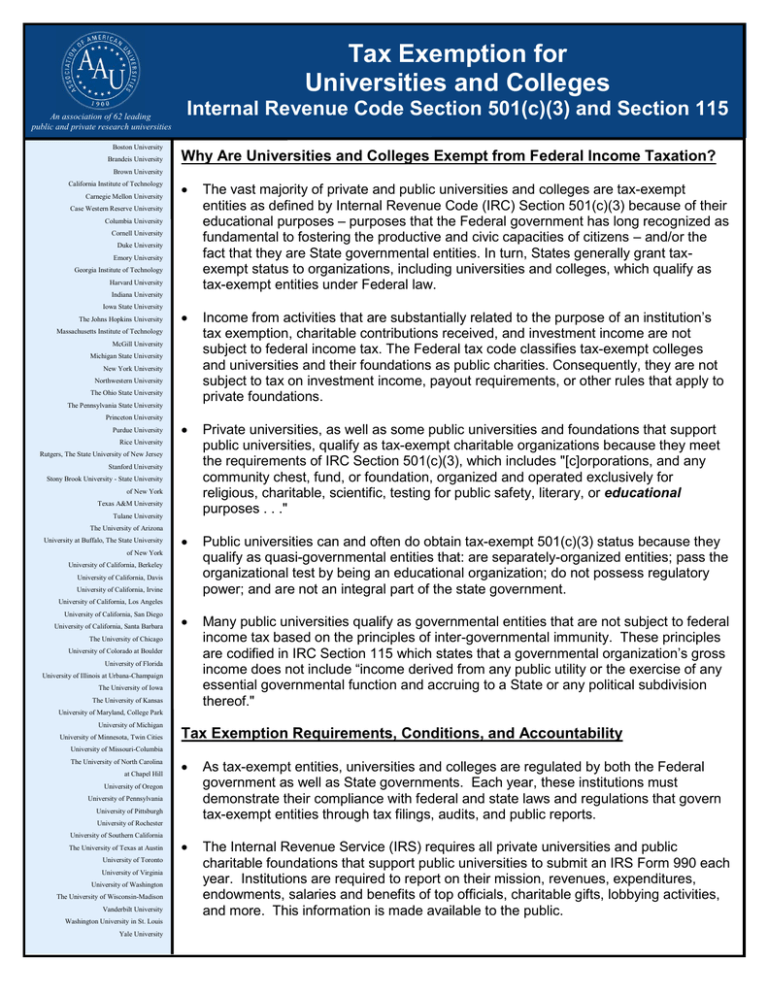
Tax Exemption for Universities and Colleges An association of 62 leading public and private research universities Boston University Brandeis University Internal Revenue Code Section 501(c)(3) and Section 115 Why Are Universities and Colleges Exempt from Federal Income Taxation? Brown University California Institute of Technology Carnegie Mellon University The vast majority of private and public universities and colleges are tax-exempt entities as defined by Internal Revenue Code (IRC) Section 501(c)(3) because of their educational purposes – purposes that the Federal government has long recognized as fundamental to fostering the productive and civic capacities of citizens – and/or the fact that they are State governmental entities. In turn, States generally grant taxexempt status to organizations, including universities and colleges, which qualify as tax-exempt entities under Federal law. Income from activities that are substantially related to the purpose of an institution’s tax exemption, charitable contributions received, and investment income are not subject to federal income tax. The Federal tax code classifies tax-exempt colleges and universities and their foundations as public charities. Consequently, they are not subject to tax on investment income, payout requirements, or other rules that apply to private foundations. Private universities, as well as some public universities and foundations that support public universities, qualify as tax-exempt charitable organizations because they meet the requirements of IRC Section 501(c)(3), which includes "[c]orporations, and any community chest, fund, or foundation, organized and operated exclusively for religious, charitable, scientific, testing for public safety, literary, or educational purposes . . ." Public universities can and often do obtain tax-exempt 501(c)(3) status because they qualify as quasi-governmental entities that: are separately-organized entities; pass the organizational test by being an educational organization; do not possess regulatory power; and are not an integral part of the state government. Many public universities qualify as governmental entities that are not subject to federal income tax based on the principles of inter-governmental immunity. These principles are codified in IRC Section 115 which states that a governmental organization’s gross income does not include “income derived from any public utility or the exercise of any essential governmental function and accruing to a State or any political subdivision thereof." Case Western Reserve University Columbia University Cornell University Duke University Emory University Georgia Institute of Technology Harvard University Indiana University Iowa State University The Johns Hopkins University Massachusetts Institute of Technology McGill University Michigan State University New York University Northwestern University The Ohio State University The Pennsylvania State University Princeton University Purdue University Rice University Rutgers, The State University of New Jersey Stanford University Stony Brook University - State University of New York Texas A&M University Tulane University The University of Arizona University at Buffalo, The State University of New York University of California, Berkeley University of California, Davis University of California, Irvine University of California, Los Angeles University of California, San Diego University of California, Santa Barbara The University of Chicago University of Colorado at Boulder University of Florida University of Illinois at Urbana-Champaign The University of Iowa The University of Kansas University of Maryland, College Park University of Michigan University of Minnesota, Twin Cities Tax Exemption Requirements, Conditions, and Accountability University of Missouri-Columbia The University of North Carolina at Chapel Hill As tax-exempt entities, universities and colleges are regulated by both the Federal government as well as State governments. Each year, these institutions must demonstrate their compliance with federal and state laws and regulations that govern tax-exempt entities through tax filings, audits, and public reports. The Internal Revenue Service (IRS) requires all private universities and public charitable foundations that support public universities to submit an IRS Form 990 each year. Institutions are required to report on their mission, revenues, expenditures, endowments, salaries and benefits of top officials, charitable gifts, lobbying activities, and more. This information is made available to the public. University of Oregon University of Pennsylvania University of Pittsburgh University of Rochester University of Southern California The University of Texas at Austin University of Toronto University of Virginia University of Washington The University of Wisconsin-Madison Vanderbilt University Washington University in St. Louis Yale University The IRS also closely oversees charitable giving to tax-exempt universities and colleges. Institutions must comply with IRS regulations and rules with respect to the valuation, disclosure, and use of charitable gifts. Tax-exempt private and public universities and colleges do not pay income taxes; however, they do pay other forms of taxes, such as payroll taxes for their employees. Tax-exempt private and public universities and colleges are subject to unrelated business income tax (UBIT) and generally must pay tax on income from an activity, trade, or business that is not substantially related to their educational tax-exempt purposes. How Does the Tax-exempt Status of Universities and Colleges Benefit Society? The educational purposes of universities and colleges – teaching, research, and public service – have been recognized in federal law as critical to the well-being of our democratic society. Higher education institutions are in turn exempted from income tax so they can make the most of their revenues. This tax exemption enables these institutions to maximize the benefits that they provide society, including: an educated citizenry which is essential to our democracy; a highly-educated, skilled, and productive workforce which is critical to our nation's competiveness; and new innovations and technologies that improve our quality of life, strengthen our security, and fuel economic growth. Because of their tax exemption, universities and colleges are able to use more resources than would otherwise be available to fund: academic programs, student financial aid, research, public extension activities, and their overall operations. Additional Information Joint Committee on Taxation Report, JCX-62-12, "Present Law and Background Relating to Tax Exemptions and Incentives for Higher Education" – https://www.jct.gov/publications.html?func=startdown&id=4474. Joint Committee on Taxation Report, JCX-35-08, "Present Law and Background Relating to Tax Benefits for Higher Education" – http://www.house.gov/jct/x-35-08.pdf. – March 2013
